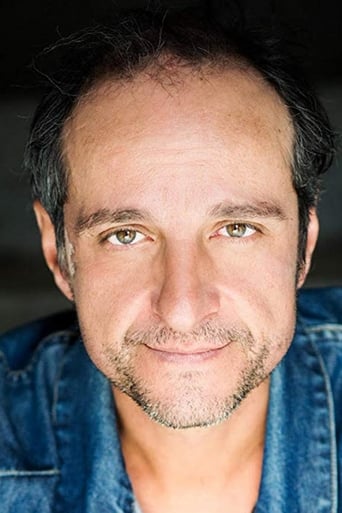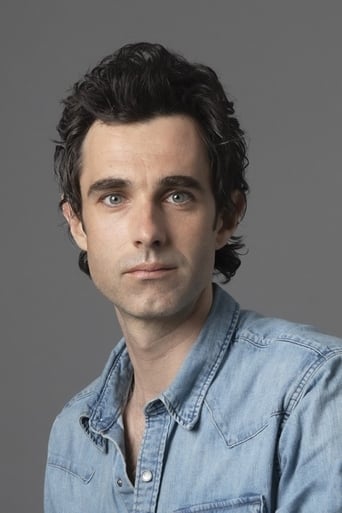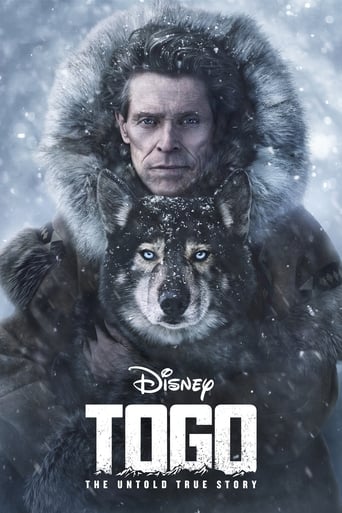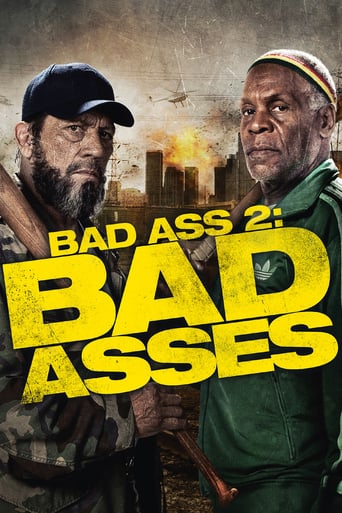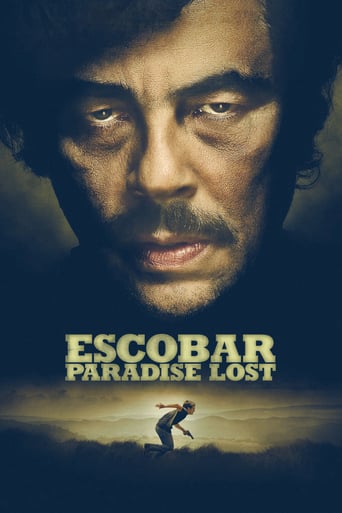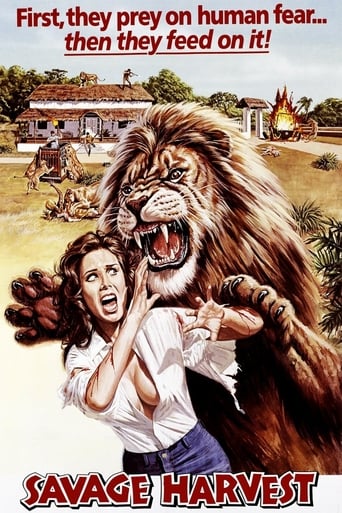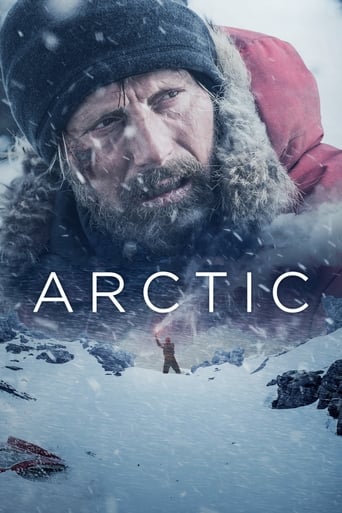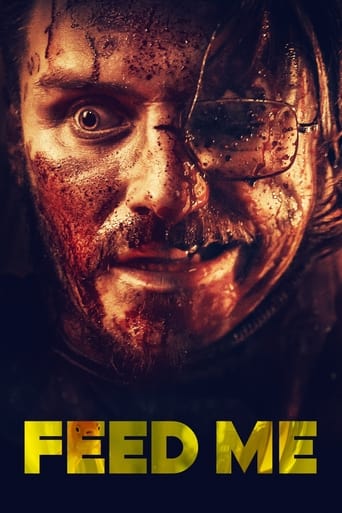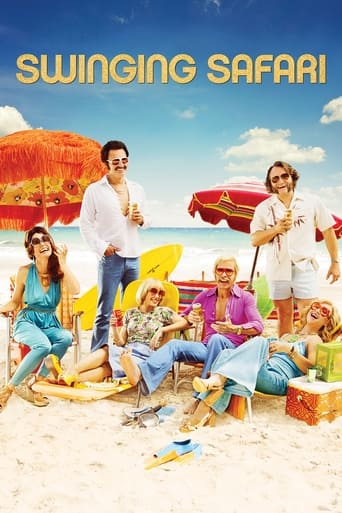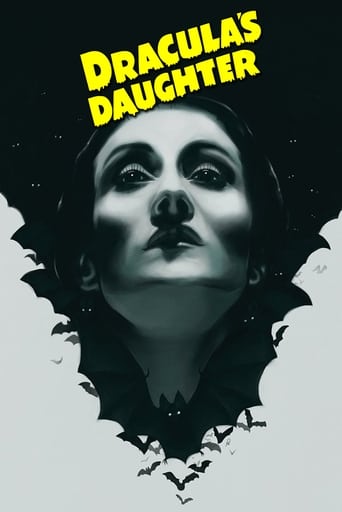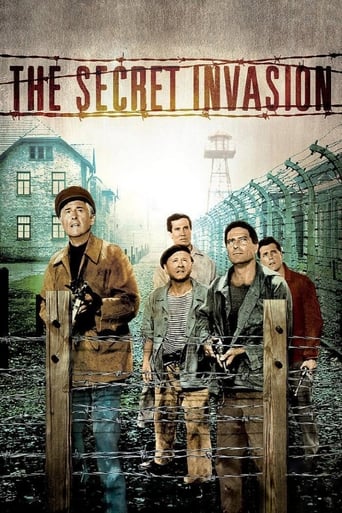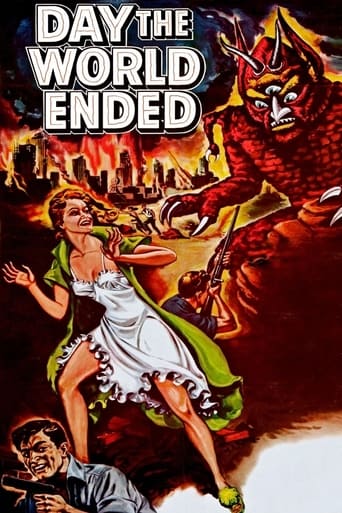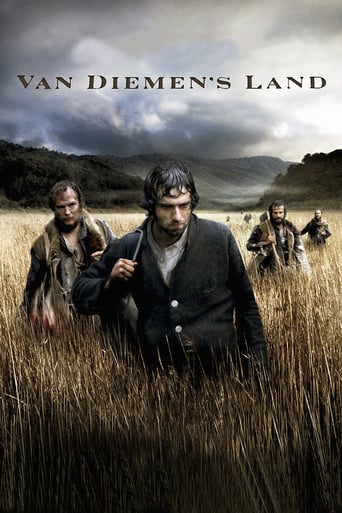
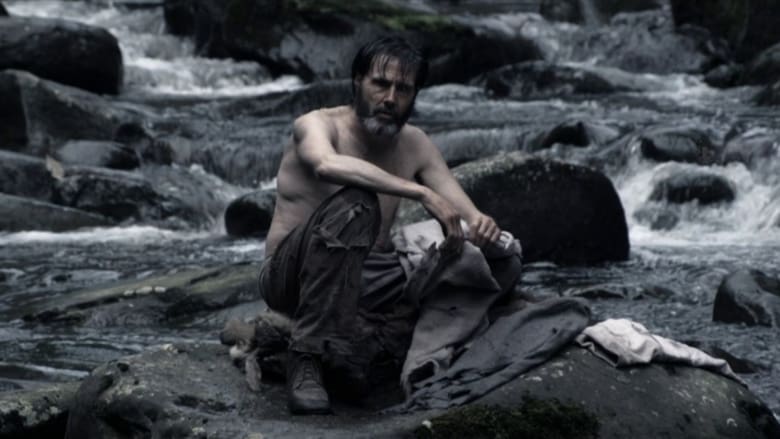
Van Diemen's Land (2009)
The true story of Australia’s most notorious convict, Alexander Pearce and his infamous journey into the beautiful yet brutal Tasmanian wilderness. A point of no return for convicts banished from their homeland, Van Diemen’s Land was a feared and dreaded penal settlement at the end of the earth.
Watch Trailer
Cast


Similar titles
Reviews
The actual events of what happened after Alexander Pearce's first escape from the prison colony in Tasmania, according to Pearce himself, are shown in this movie. It's probably somewhat too slow-moving for some young viewers, but I was impressed by how realistic it is. The characters are believable. The direction is meticulous. The acting is excellent, in many situations an actor's expression reveals feelings of uncertainty, confusion, guilt, fear, horror or misery. The cinematography showing the Tasmanian wilderness is visually splendid.Do not expect a typical slasher/horror film, this movie is much more intelligently written and directed. The film's intention is to tell a story, rather than to frighten.
"Wasn't the devil in you when you brought me here?"'Van Diemen's Land' opens up a window into the darker chapters of Australia's convict settlement past, when the British penal colony was a harsh, unforgiving wilderness populated by struggling pioneers and convicts sent to the other side of the earth for stealing so much as a loaf of bread. Once there, repeat offenders might be confined to Sarah Island, a hellish prison camp in Macquarie Harbour in western Van Diemen's Land, now Tasmania. Conditions there were so extreme that in 1822, Irish-born malcontent Alexander Pearce and seven others, tasked with felling the surrounding forests to provide shipbuilders with high-quality wood, attempted to escape their exile. When plans to steal a moored whaling vessel fell through, the escapees, without much aforethought, plunged into the harsh Tasmanian wilderness intending to travel east to Hobart, some 225km away. Although Robert Greenhill, one of the convicts, could draw upon his many years as a sailor to provide navigational expertise, none present knew how to survive in bushland so inhospitable even the indigenous Australians largely avoided it, and when food supplies ran out, they turned to cannibalism. Few of the ill-fated expedition would survive to tell the tale. In 'Van Diemen's Land', we join the convicts on the day of their escape attempt and follow the grizzly events that ensue.The story of Alexander Pearce is perhaps not unsurprisingly missing from the school curriculum in Australia, and it was only through this film that I myself became familiar with this dark chapter of White Australia. 'Van Diemen's Land' inspired me to fire up my browser and learn more, with the realisation that in movie terms, I was watching the middle part of a trilogy. Part 1 would have dealt with Pearce's repeated offences condemning him to slave labour on Sarah Island. There, he would continue to prove unruly for the authorities, practicing his talent for theft and disruption, ultimately finding himself on work detail felling trees in Macquarie Harbour and seeing an opportunity for escape. Part 3 would have dealt with the consequences of his actions, including one final adventure, which the last sequence of 'Van Diemen's Land' briefly covers. Director and co-writer Jonathan auf der Heide, however, appears to be fixated upon the middle part of the story, and while the moment when Pearce acquired a taste for human flesh strikes an undeniable discord with all but perhaps the Korowai tribe of Papua New Guinea, I can't help feeling that it's a little like telling the tale of Ned Kelly focusing only on the killings at Stringybark Creek. Only a few captions either side of the film quickly fill in the blanks, hinting that there is more to the story. Nonetheless, 'Part 2' is well-crafted for what it is and sheds a memorable, yet gloomy light on this hitherto forgotten saga.auf der Heide wisely chooses a cast of unknowns to inhabit the fateful eight, which ensures the audience will accept their alter egos at face value. Oscar Redding, perhaps the best-known, creates an Alexander Pearce just possibly capable of redemption, up until the moment he agrees to sacrifice a member of the party for food, while Arthur Angel portrays a Robert Greenhill you wouldn't want to be within twenty miles of when it came time to sleep. The rest of the cast fill out the remainder of the ill-fated group with similarly creditable performances, with the Scottish characters delivering their lines in Gallic alongside the 18th Century English dialect to underscore Australia's role as a dumping ground for convicts all across the British Isles. The string-powered score, often more sound than symphony, meshes well with the bleak, washed-out picture to strongly evoke the dark mood of the piece. There are no archetypal heroes, only desperate human animals hastening the decay of civilisation's thin veneer. Filmed on location in south-central Tasmania, the authentic natural backdrop does much on its own to sell the concept that the escapees are not only at the end of the earth as they themselves suggest, but that the land is cold and unforgiving - just as much today as it was in 1822. If I have issues with the film, therefore, it's the storyline.By focusing purely upon the escape attempt and the descent into cannibalism, the tale feels reduced somewhat into a B-grade exploitation horror. It doesn't provide suitable build-up to properly explore the choices certain characters make throughout, though the documentation for this does exist. In consequence, I felt the leap to 'the other meat' was a little rushed, reminding me of an early South Park episode where cannibalism is the first rather than last resort. In addition, the full story would be more satisfying than some of the edited highlights 'cannibalised' for the purposes of a thriller. There is far more to the Alexander Drake story than we are witness to in 'Van Diemen's Land'. Undeniably, the issue of runtime comes into play here, however as I suggested earlier, there is enough scope for more than one feature. However, auf der Heide is the first to explore it cinematically, and perhaps this will spark interest in genuine Australian Gothic from here on. It certainly captures the tone and feel of that bleak world, taking strides towards tapping into a rarely explored period of Australian history that perhaps may now be brought to light free of the nationalist veil. Certainly any proud Australian and film fan should see 'Van Diemen's Land' for this purpose, and genre fans everywhere will appreciate what it does achieve. Let's hope it's a taster of things to come.
This movie has a terrific, unsettling opening scene. Unfortunately... the rest of the film consists of 100 minutes of actors stumbling through the bush occasionally bludgeoning one another with axes. It's a simple story which makes it difficult to adapt to a feature length film, and this attempt fails dismally.It is an incredibly dull and flat movie. It has an intrusive and annoying soundtrack. The occasional use of pretentious poetic subtitles is awful and detracts from, rather than adding to the chilling atmosphere. The cinematography of the bush was OK at best. One or two scenes highlighted the spectacular scale or creepy, alien nature of the central west wilderness of Tasmania. The majority was uninspiring.Do yourself a favor and listen to the energetic Wedding Parties Anything song "A tale they won't believe" instead.
Just saw this brilliant, grim little piece of Australian Gothic the other day as part of the 12 Perth Annual Revelation Film Festival here in West Australia.As a Forensic scientist and a horror movie buff I have both a professional and personal curiosity regarding cases of anthrophagy/cannibalism, and the Pearce case is a fascinating one- clearly the Australian public/movie industry think so too- there are currently three films and a book about Pearse, all released within the past few years. Auf Der Heide has crafted the best of all the Pearse projects- stark and uncompromising, the film doesn't shy away from the brutal fates the eight convicts escaping into the Tasmanian outback suffered- the men butchered for meat don't die quick and easy, as in many a Hollywood film. Nor is the film a gratuitous, relentlessly grim affair- there are moments of eerie, quiet beauty- a soon-to-be-victim kneeling and waiting for the axe, stares up and out at the thick, green beauty of the rain forest around him; a sequence filmed on a hillside drenched in torrential rain, and Pearse's Gothic, Gaelic-language narration: "I have looked up at God looking down; he dances with an axe in his hand..." Brilliant film- beautifully directed, filmed and acted- with Mark Leonard Winter, in particular, a real stand-out as Dalton.


